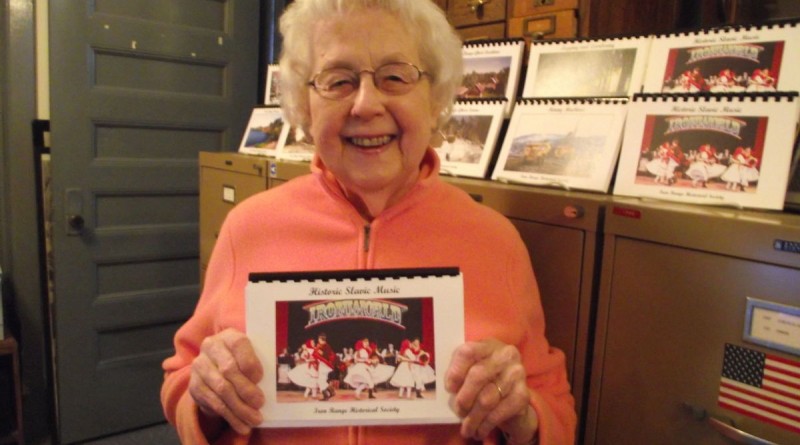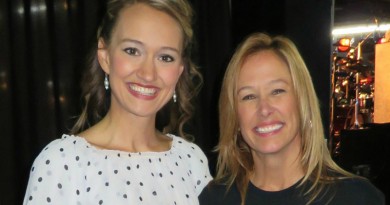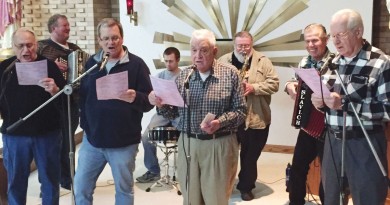Finding range history on main street Gilbert
A treasure trove of history exists on main street in Gilbert, MN, in the old city hall, and Kathleen Bergan of Biwabik, MN has worked tirelessly as volunteer curator for some 30 years on preserving and promoting the history of the area through the Iron Range Historical Society.
Part of her work has involved the publication of nearly a dozen history books – the latest one, with stories and photographs, is called “Historic Slavic Music,” and the next will tell of the current polka musicians on the Range.
Bergan describes in the introduction to the book, “The epicenter of the Slovenian-American-style of polka is undoubtedly Cleveland and northeast Ohio, but it is also popular in Pennsylvania and in many other cities in the Great Lakes region, including the Iron Range of Minnesota. The most influential figure in Slovenian-American polka is Frankie Yankovic.”
The polka-great made his first appearance on the Range in 1947, at a three-day engagement at the Eveleth Hippodrome and the Slovenian National Home in Chisholm.
He was elected “Polka King of America” in 1940 and he became “an overnight sensation through his recording of ‘Just Because.’”
Yankovic would follow with “Blue Skirt Waltz,” “Beer Barrel Polka,” “Hoop De Doo,” and “In Heaven There is No Beer.”
Yankovic often said the Iron Range was his second home.
The book also features Johnny Pecon, the Miskulin-Trebar Orchestra, Verne Meisner, Don Lipovac, Johnny Vadnal, area button box clubs, Oscar Fryckman, Joe Cvek, Bobby Aro, Joe Mlakar, Frankie Frol, Tony Bombich, Tamburitza musicians, Viola Turpeinen, a second generation Finnish-American and the first female accordion star in America, and the popular Frankie Kramer, a favorite with polka fans in Gilbert.
The cost for the books is $12; $14 if mailed.
“I guess I’m a workaholic,” Bergan said with a smile. “There’s always something unfinished. We have done 150 newsletters.” All of them are archived and available.
The other books available are on logging, food and farming, the Gilbert Centennial, mining machines, Iron Range natural beauty, Iron Range architecture, commercial and emergency vehicles written by James Korpi, Iron Range firsts, and Iron Range ghost towns and locations.
Bergan spent “uncountable hours on the book,” she said. But, it was worth it, she said, telling how the late Nick Vukelich “came in personally and donated this photo” of an accordion band – his father Nick Sr. was a member – that practiced in the basement of the First National Bank of Gilbert. “I’m proud of helping to keep the historical society fluid.”
Bergan said, “We used to be in Aurora and Biwabik, with just a couple chairs and a table.”
Over the years, many things have been donated to the IRHS, and the photo and printed archives are extensive. Bound volumes of the old Gilbert Heralds are on site, and with the Range Times in Biwabik shutting down publication in 2016, said Bergan, “We have all the Biwabik papers stored in the ladies cell.”
She added that a mannequin with a vintage nurse’s uniform is in the old standing cell once used for those arrested for drunkenness. Bergan noted that her father-in-law was the storied Gilbert Police Chief Nick Bergan.
The historical society operates on a shoestring budget, with old city hall owner Tony Addy charging a modest fee for rent.
Another facet of the Iron Range Historical Society is the website – ironrangehistoricalsociety.org. The mailing address is PO Box 786. The email address is ironrangehistsoc@gmail.com, and the phone number is (218) 749-3150.
An IRHS member commented on the IRHS Facebook page, “This website is an absolute treasure. And their publication, which comes out four times a year, is excellent. Only $10 to become a member. Thank you to all of those people who work and volunteer at this wonderful society.”
An all-volunteer board governs the IRHS — Joan Holmes, Audrey Surla, James Korpi, Marian Dirks, Palma Voss, Robert Kivela, who was a founding member in the 1970s; Gregory Glavan, Bergan, Robert Hedlund, Michele Lammi, and Nancy Bergman.
The hours are Mondays and Tuesdays from 10 a.m. to 2 p.m. Appointments can be made for other times.




